Rusty-Spotted Cat, The World's Smallest Feline Species And The Cutest Thing You'll See Today
Nature is known for its majesty and sacredness, but it is a place for cuteness as well! Yes, you are not mishearing anything. Forests and deserts dotted around our amazing Planet are homes to millions of cute animals. This time, let us take you on an adventure to find out the smallest feline species on Earth, the rusty-spotted cat.
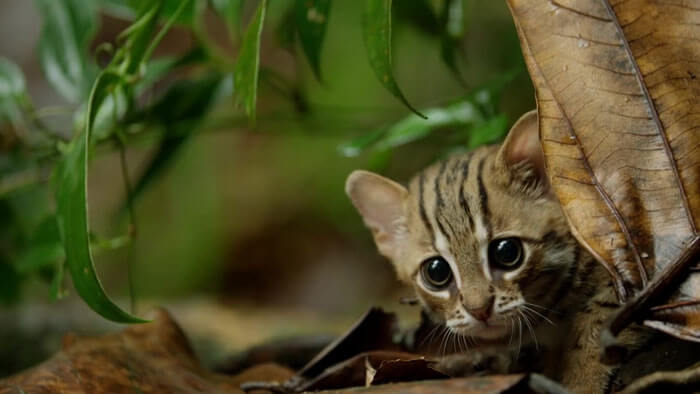
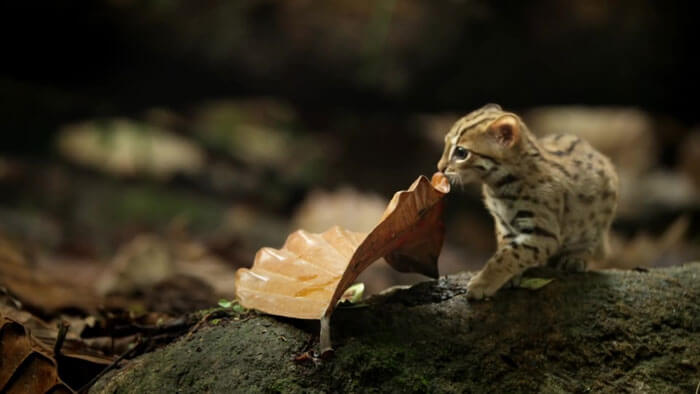
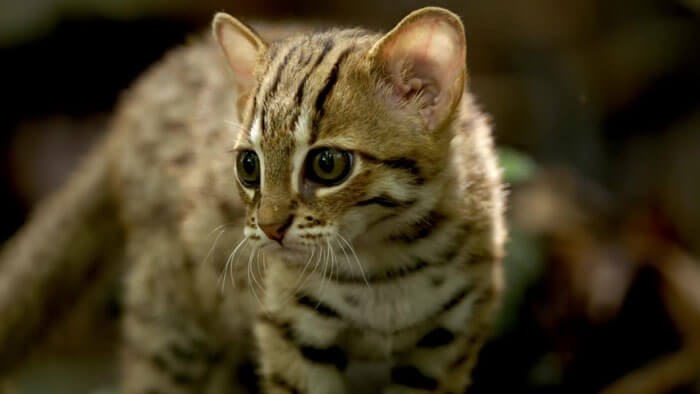
"Perhaps the closest examples to the Rusty-spotted cat to draw upon are actually lemurs and other small primates." continued Miles. "People are attracted to the idea of species like these as pets because they are cute and intelligent, and their size makes them seem manageable and less dangerous. Yet, the truth is that these situations do not work out and the animals end up being euthanized or if lucky, put in a rescue like Lemur Island."
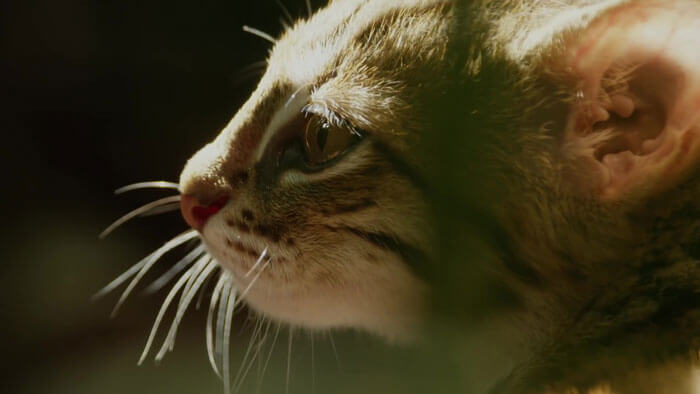
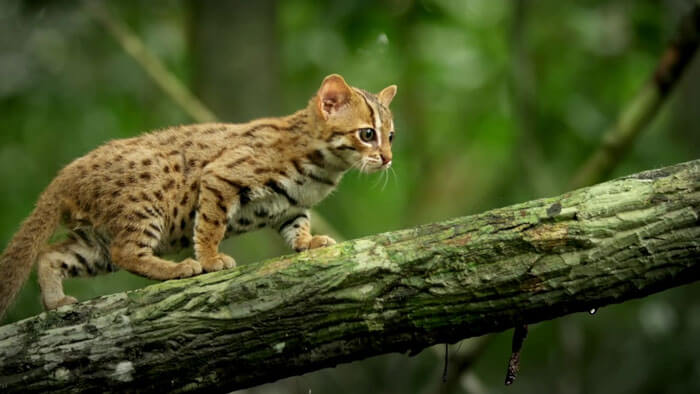
"Bringing Rusty-spotted cats into human homes, especially with the presence of other species they would not encounter in nature, dramatically increases the risk of spreading disease and the likelihood that these potentially deadly outbreaks are diseases we have never seen or treated before."
Watch the video below:
H/T: Bored Panda

Screenshot: BBC
Living in the wilds of Sri Lanka and India, the species has a slimmer and smaller body than that of domestic cats. Some of their images have been captured and recently shown on BBC's latest video of the Big Cats series. The video features a wild cat with a round head, short ears, and amber-irised eyes, roaming the wood and jumping over the water to find food. She wears a short smooth coat with spots of rusty brown in the upper part and horizontal bars on the chest. Her legs are short with cute black soles. Measuring at around 35-48 in body length, the adorable creature is undoubtedly the cutest wild cat and easily fits human palms.
Screenshot: BBC
Although you can see Rusty-spotted cats during the daytime, they are nocturnal animals. To avoid predators, these cats often hide in trees and caves. The rare species is often described as a smaller version of a leopard, but they have fewer spots on their rust-colored coat. Their main source of food comes from rodents and birds. However, they sometimes feed on small prey such as lizards, frogs, and insects.
Screenshot: BBC
While many people like to keep these animals as pets, scientists suggested that Rusty-spotted cats shouldn't be domesticated because of the habitat difference. Researcher Danielle Miles, who has done her study on carnivores and rusty-spotted cats, told Bored Panda:" An easy way to predict the outcome of people buying rusty-spotted cats is to look at the fate other species have had to face from these scenarios. How many other wild cat species, bears, alligators, and the like have had domestication attempts only to land hundreds to thousands of animals in rescues living incomplete lives as they cannot re-acclimate to a free life.""Perhaps the closest examples to the Rusty-spotted cat to draw upon are actually lemurs and other small primates." continued Miles. "People are attracted to the idea of species like these as pets because they are cute and intelligent, and their size makes them seem manageable and less dangerous. Yet, the truth is that these situations do not work out and the animals end up being euthanized or if lucky, put in a rescue like Lemur Island."

Screenshot: BBC
Due to the decline in their natural habitat, the rusty-spotted cat is listed as one of the near-threatened species, apart from American bison or the red-fronted lemur. Sharing her opinion on how to protect these animals in the wilds, Miles said: "There are no specific conservation plans targeting just the rusty-spotted cat that I am aware of currently, but a focus on preserving their natural habitat and protecting more space from development is key. Protections for unaltered landscapes would not only benefit the Rusty-spotted cat into the future but would provide habitat for all species in those ecosystems, some of which has surely not yet been discovered...I do think that the growing intrigue for the Rusty-spotted cat can be put to good use for conservation,"
Screenshot: BBC
"Secondarily," she added, "with any species that is newly interacting with humans, there is the concern of zoonotic diseases. Zoonotic diseases are those spread between humans and animals and many of our most deadly outbreaks come from this type of transmission, for example, SARS and Ebola outbreaks in recent history.""Bringing Rusty-spotted cats into human homes, especially with the presence of other species they would not encounter in nature, dramatically increases the risk of spreading disease and the likelihood that these potentially deadly outbreaks are diseases we have never seen or treated before."
Watch the video below:
H/T: Bored Panda
Share this article
Advertisement